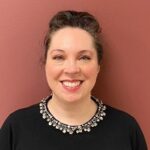Volume 36 Number 2 | April 2022
Angela D. Darby, MPH, MLS(ASCP)CM, ASCLS Region III Director

“Fortunately, ASCLS and other organizations, along with countless individuals on social media platforms, are speaking up to ensure we are seen and heard.”
Some of the organizations and programs are listed below, and I hope that if you are interested in any of these, you will visit the links for more information.
- ASCLS, through its Labvocate Action Center and Government Affairs Committee, keeps members up to date of goings-on in our government that can possibly or will affect the laboratory. The most recent was the effort to delay PAMA, which passed on December 10, 2021. The Protecting Medicare and American Farmers from Sequester Cuts Act postponed cuts to the Clinical Laboratory Fee Schedule until January 2023.
- Each year laboratory organizations such as ASCLS and others celebrate Medical Laboratory Professionals Week in April. Created in 1975, Lab Week offers a chance for laboratorians across the United States to promote visibility through advertising and programs such as the annual ASCLS Lab Week Run, now in its seventh year.
- State newsletters are a main source of information for our grassroots state societies. Florida has the Florocular, North Carolina the Filter Paper, and South Carolina the recently revitalized Palmetto Probe. Many other states in various regions have newsletters as well, and this is a great way to spread the word about national, regional, and state information.
- Throughout the pandemic, many states and regions (and ASCLS itself) turned to virtual learning to replace face-to-face conferences. The Emerging Laboratory Managers Collaborative Conference (ELMC2), Laboratory Legislative Symposium, Intermountain States Seminar (IMSS), Clinical Laboratory Educators Conference (CLEC), and various state societies held virtual conferences this year.
- Social media platforms continue to be one of the best and most popular ways to get out information about the laboratory profession. Additional opportunities include podcasts (including ASCLS’ Off the Bench) and the “Ask Me Anything” series from the Ascending and Developing Professionals Forums. ASCLS members such as Drs. Kyle Riding, Brandy Gunsolus, and Rodney Rhode have been instrumental in participating in videos (Diverse Health Hub), television interviews (CNBC), and publications (Healthcare Hygiene Magazine, respectively). Social media also provides a platform for discussing burnout, career challenges, mental health, and other issues that have become unique to the pandemic, between people and organizations from all facets of the profession.
Lastly, I would like to share with you my personal story of entrance into the profession. During the spring of 2003, I was a student at the University of Memphis majoring in microbiology and molecular cell science. Since I was a little girl and knew what a “lab” was, I dreamed of working in one (precocious child, I know). Little did I know that to work in Tennessee in a clinical laboratory, you had to be licensed, and getting a license required completing a degree in medical laboratory science. So, with one semester left, I transferred to the University of Tennessee Health Science Center in Memphis and graduated with a BS in 2005. I would not be where I am today, with the education I have, without mentors such as Linda Ross and Lynn Ingram. Linda spoke in one of my classes and revealed the licensure issue, and Lynn introduced me to the enormously gratifying and super exciting world of ASCLS.
Seeing that COVID will more than likely be with us for a while, it is more important than ever that we promote our profession, get our names out there, and continue to fight for legislation that aids in keeping schools open, providing scholarships, protecting the laboratory, and revealing to all that we are a critical part of the healthcare team.
Angela D. Darby is a Medical Technologist IV at St. Jude Children’s Research Hospital in Memphis, Tennessee